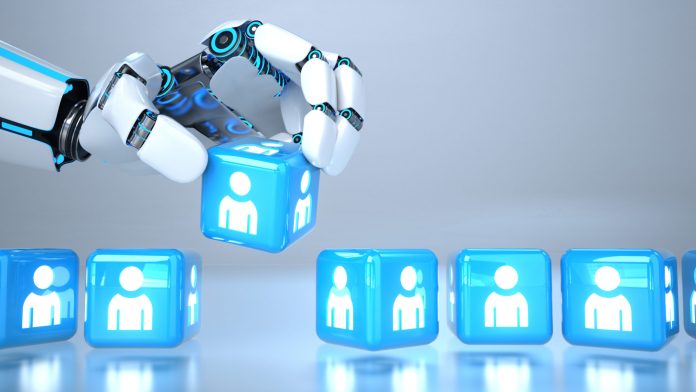Hong Kong companies are turning to artificial intelligence (AI) to streamline human resources tasks, especially retaining and hiring talent amid punishing competition for labour.
Cary Shek Pui-yee, the vice-president of people and culture at Klook, an online travel agency, said in an interview last week it had modernised operations using innovative technologies, both for assisting customers in finding products and internal recruitment and training.
Klook said Hong Kong users booked eight times more overseas products and 10 times more local travel options in April compared with last year.
The firm also increased its global staff by 20% to 1,300 employees last year and aimed to hire at least 200 employees this year.
“We conduct regular performance reviews and provide training directions to colleagues,” Shek said. “The AI platform allows us to analyse data and develop effective talent strategies, especially in retaining employees.”
Daniel Cham Chi-yuen, general manager of Greater China at Workday, a cloud-based software company using AI that provides human capital planning for businesses, said many industries struggled to find enough staff to support the increase in business following the end of the coronavirus pandemic.
Statistics showed Hong Kong’s working population shrank 6% to 3.46 million in 2022 from 3.68 million in 2018, intensifying competition for talent.
Cham said the Workday platform enabled candidates to interact with AI from the application stage. It analysed their skills through their résumés and made interview comments viewable by all company stakeholders, which made hiring more efficient.
“After onboarding, it helps identify and cultivate employees’ potential through training and mentoring, as well as providing career planning to increase their sense of belonging and retain them,” Cham said. “Otherwise, young talent may leave for better opportunities elsewhere.”
Onboarding refers to integrating new employees into a company.
Cham explained the system was also able to prompt messages for managers to review the pay of individuals based on their performance, salary benchmarks and recent turnover patterns to retain employees.
Johnny Ng Kit-chong, a lawmaker and entrepreneur who has incubated biotech and fintech start-ups in the city, said platforms with AI and big data were particularly useful for big companies in managing personnel.
“Such systems allow employers to offer timely incentives, such as pay rises and promotions, to employees who are performing well so they will be less likely to leave,” Ng said, acknowledging the trend of automation and digitalisation for enterprises.
Sid Sibal, vice-president of Greater China and head of Hong Kong at search firm Hudson, said human resources information systems would improve the employee experience but not attract talent.
“An applicant doesn’t know about these interesting employee experiences until joining a company,” Sibal said. “We have to attract them before retaining them. AI applications are for retention, but a lot of companies in Hong Kong are struggling with the attraction part.”
He added many employers had a hybrid department dedicated to recruitment marketing, focusing on how to attract talent while stressing the importance of employee engagement.
“A lot of companies are doing team building exercises, including beach clean-ups, brewing coffee and playing VR games,” Sibal said. “Companies are focusing on these things now because they need to find ways to improve engagement.”
Cigna Healthcare Hong Kong’s CEO Jonathan Spiers said the company took a holistic approach to employee health and well-being to attract and retain talent, with the situation improving this year.
He said staff and their family members were able to access free counselling from a licensed professional by phone at any hour to support their work or personal life, apart from medical cover and wellness leave. – South China Morning Post






















